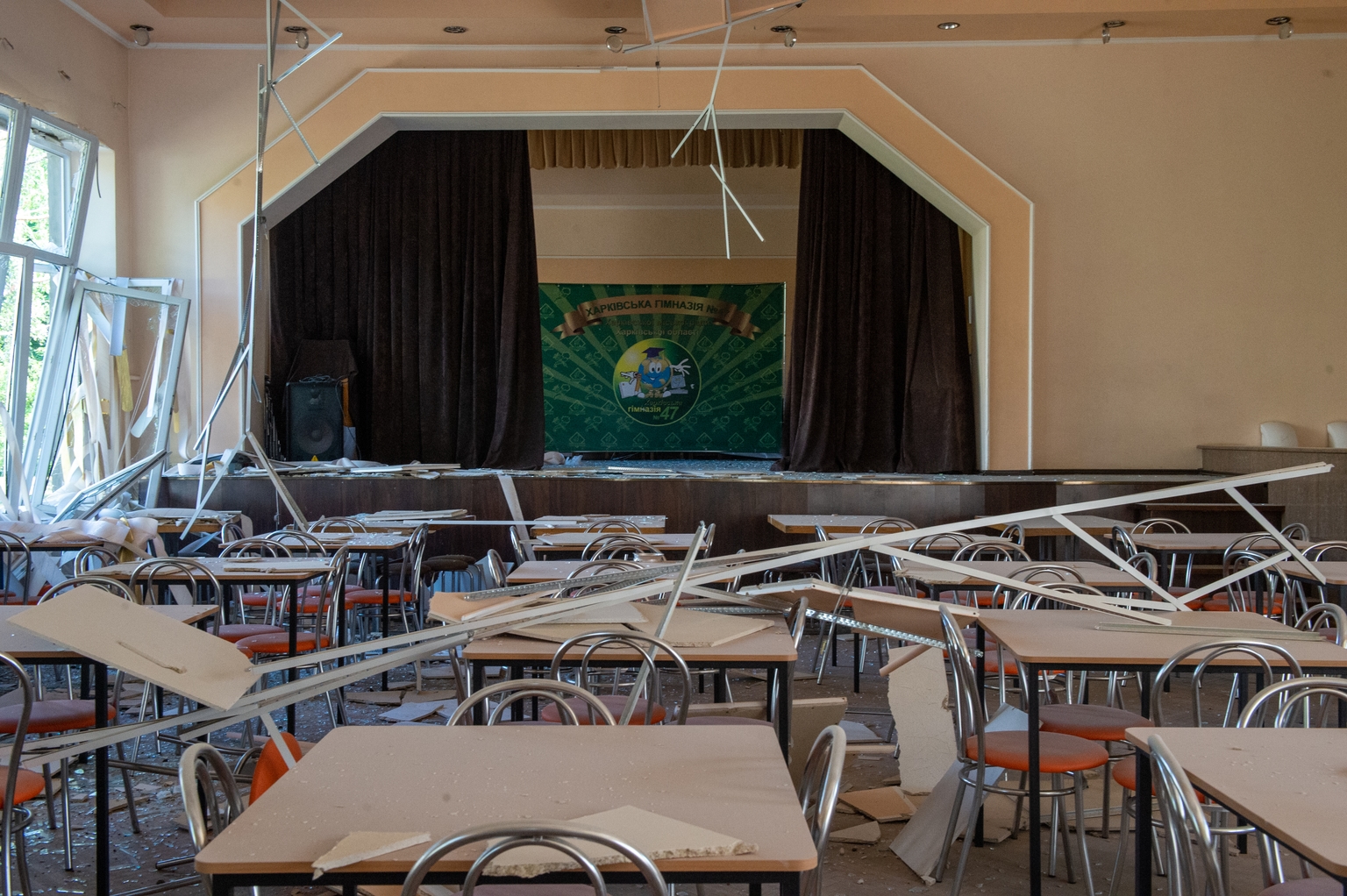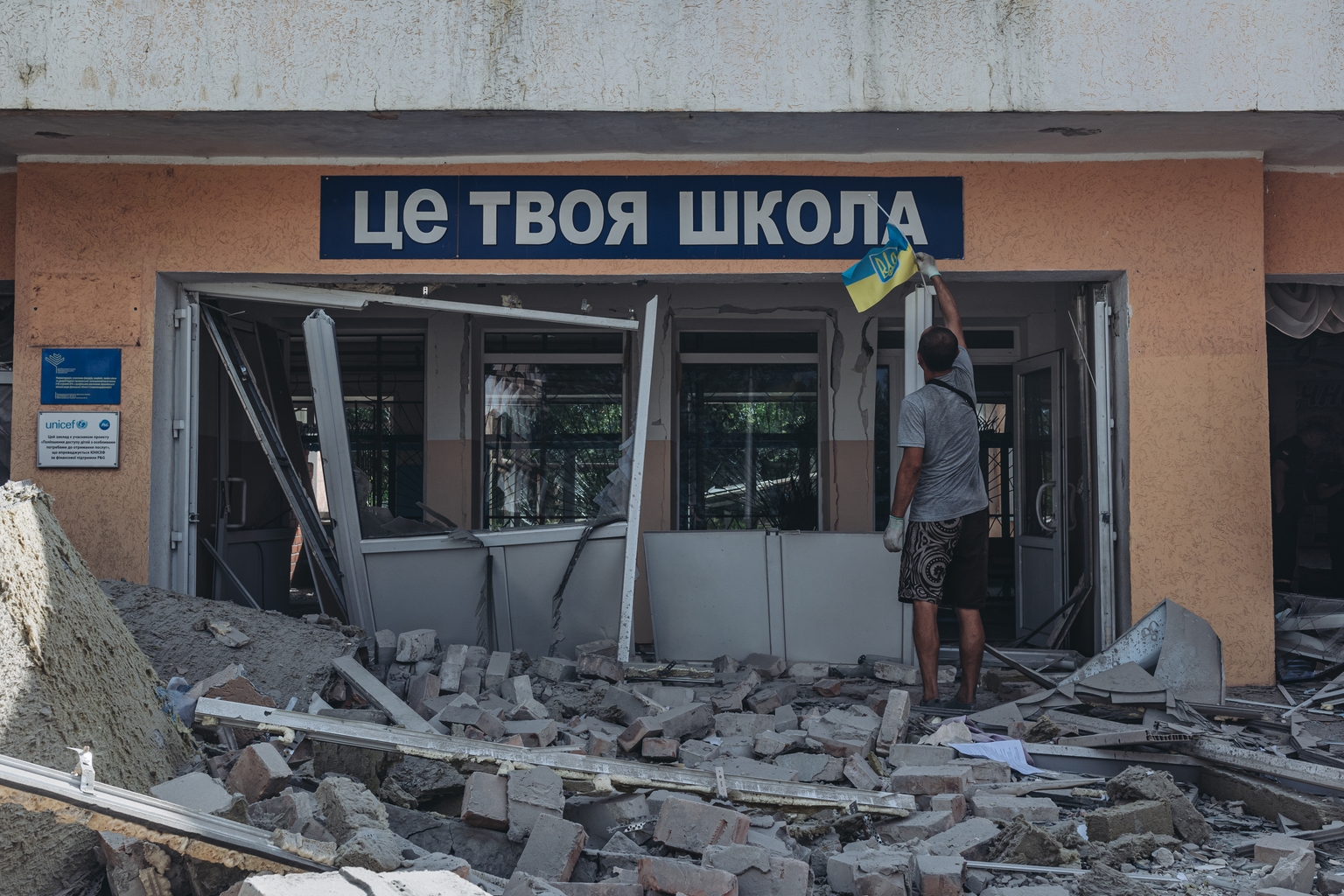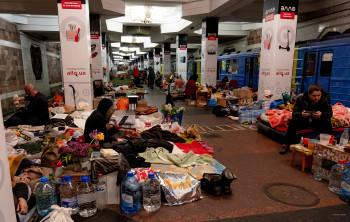Many Ukrainian schools to reopen this week as Russia’s war continues
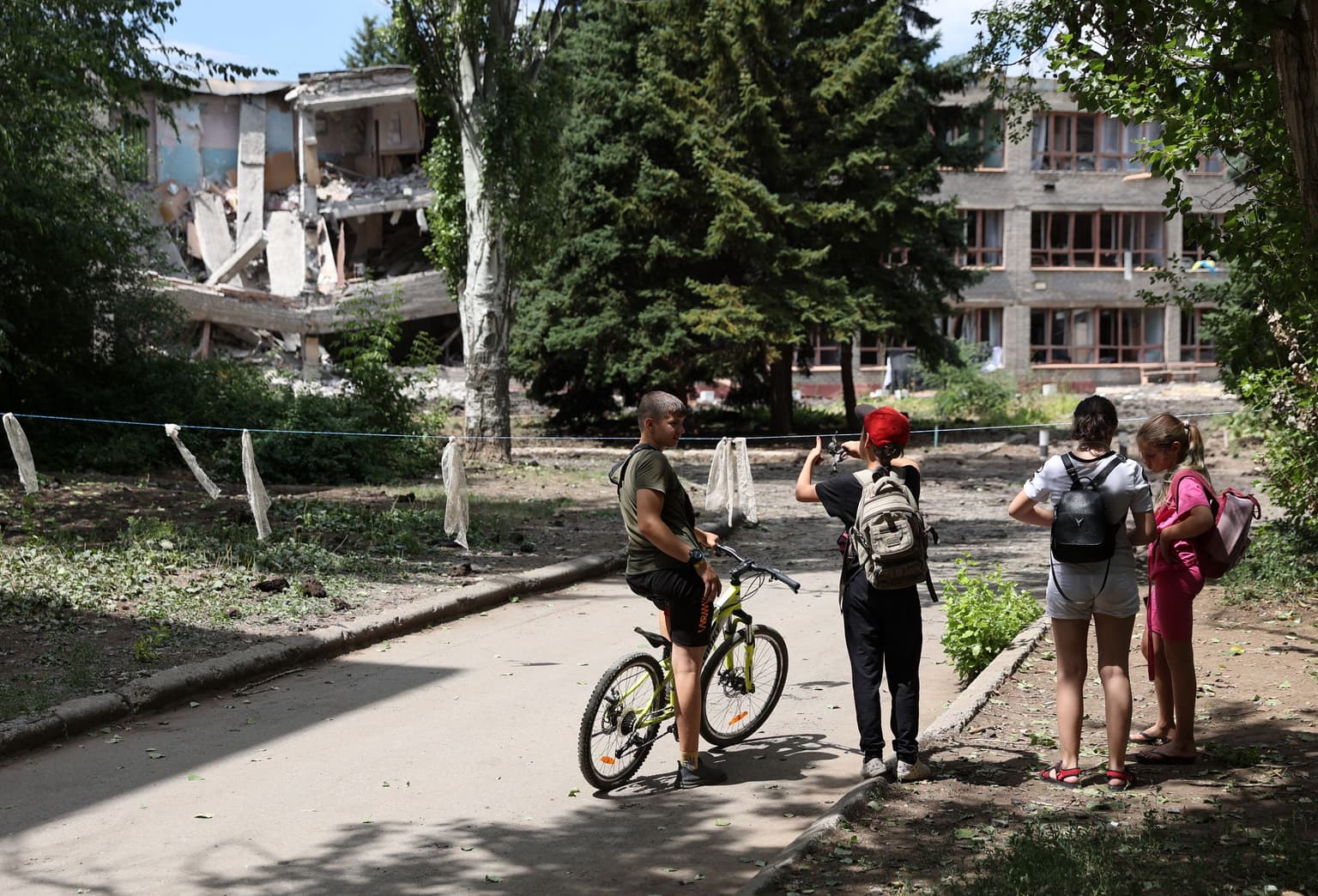
Many Ukrainian schools will be reopening on Sept. 1 for the first time since the start of Russia’s full-scale invasion.
The whole idea of children going back to school sounded surreal in the early stages of the war. Education was abruptly disrupted and children who had access to the internet began taking classes online amid air raid sirens and in many cases explosions and Russian shelling.
As the start of the school year approaches, Russia continues to wage war in Ukraine and intense battles unfold in the east and south. Though a sense of normalcy has returned in cities further away from the front line, like Kyiv and Lviv, indiscriminate Russian attacks on civilian infrastructure have remained a reality across the country.
Not all children will get to go back to school and meet their classmates. Nearly two-thirds of children in Ukraine have had to flee their homes, according to UNICEF.
And at least 379 children have been killed by Russia’s war, according to Ukraine’s General Prosecutor. These numbers are expected to be much higher as they do not account for occupied territories or where there is heavy fighting.
There are also tens of thousands of school-aged children living near the front line in heavily shelled areas. In war-torn Donetsk Oblast in Ukraine’s east alone there are 50,000 children, according to deputy head of President Vololdymyr Zelensky’s Office Kyrylo Tymoshenko.
Despite the circumstances, Ukraine is determined to resume life wherever possible.
Tymoshenko said in June that Russian attacks have inflicted damages on nearly 20 percent of schools and kindergartens across the country, but institutions that are able to reopen will be offering the choice of continuing education in-person or online.
Getting back lost time
While some parents feel uneasy about their children going to school while the threat of the war persists, Olena Mukhachenko says she is ready for her eight-year-old daughter Anastasiia to resume offline education.
The 40-year-old mother living in Sofiivska Borschahivka, Kyiv Oblast, said that Anastasiia enjoys studying but it’s difficult for her to sit in front of the computer all day. Her mother says her soon-to-be second-grader struggled a lot when the majority of last school year’s classes were online due to Covid-19 quarantine measures.
Anastasiia has been telling her that she is eager to go to school. The mother and daughter have already done their back-to-school shopping.
Mukhachenko remembers the first months of the war with horror when her family decided to stay behind while Russian forces were approaching Kyiv and explosions were happening nearby. She says it was important for her not to scare her children since it could lead to psychological trauma, adding that “we need to continue living.”
But Mukhachenko is still worried about sending her child back to school. "Anything that could happen at home could happen at school,” she said.

Iryna Kravitska, 30, from the western city of Lviv also wants her eight-year-old daughter Yana to go play with other kids. Many of Yana’s friends left their hometown when the war broke out in February.
Kravitska isn’t fully comfortable with sending Yana to school where she can't be sure her daughter will be safe in case of air raids, but she understands the importance of social connection for children.
She says that her daughter had been telling her that she wants to play with friends and meet new people. Yana, who will be in the third grade starting September, had been communicating with her friends on social media but she misses meeting them in person.
“She wants to be in a group and build friendships,” Kravitska said of her daughter.
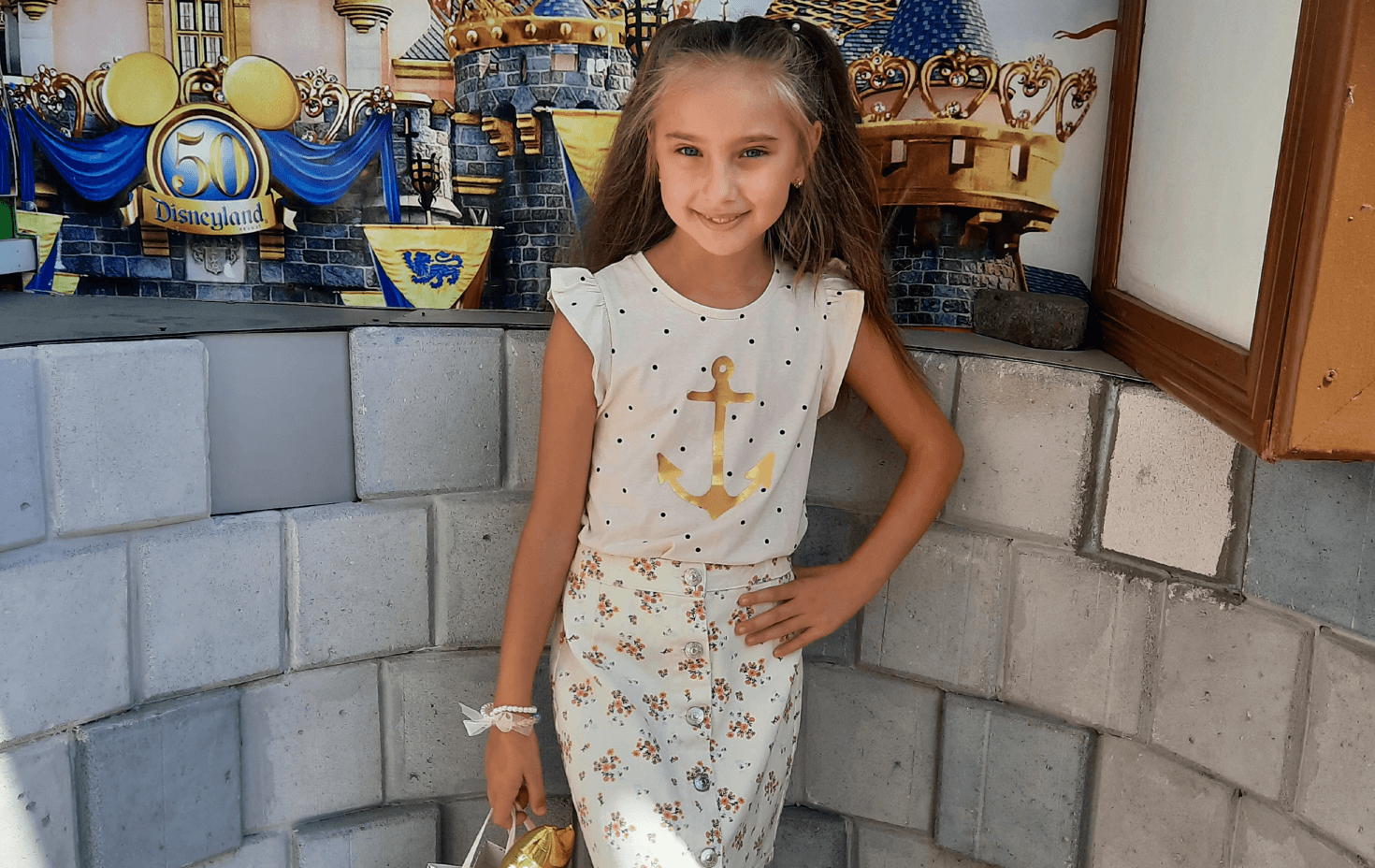
Lost childhood
For children still living under Russian bombardment, the idea of going back to school is a distant prospect.
Schools in major cities where Russian attacks and shelling are still frequent like Kharkiv, Kramatorsk in Donetsk Oblast where mandatory evacuation began in August, and Mykolaiv in the south, will remain closed due to safety concerns.
Having spent the past six months in the hard-hit eastern city of Kharkiv, 11-year-old Oleksandra understands why she can’t go to school. She and her female family members had been living in a metro station until late May when the city resumed its public transportation and they were asked to relocate elsewhere.
Oleksandra’s grandmother said that the family had never considered fleeing Kharkiv. Oleksandra’s father has been fighting on the front line in the region but they decided to stay behind primarily due to financial reasons.
A few months after returning home from life underground, Oleksandra's mother and grandmother aren’t ready to let their kids go outside on their own. She and her 13-year-old sister Maria spend most of their time at home in front of a screen to keep themselves occupied. On weekends, they get to go to a quieter district to spend some time in the fresh air.
Oleksandra and Maria have already received their textbooks to begin their school year online. Though some nights are quieter than others, Russian forces continue to shell Kharkiv and civilian casualties keep on rising.
“It’s dangerous to go to school,” their grandmother told the Kyiv Independent. “It’s safer at home.”

Divided parents
Parents have mixed opinions about the resumption of in-person classes. Going back to school helps parents focus more on their jobs. But it also means that they will no longer be able to keep an eye on their children around the clock.
But while the situation is abnormal, many parents are worried their children will miss the opportunity to socialize and learn necessary communication skills.
A June petition demanding a ban on full-time in-school education gathered over 26,000 signatures. President Zelensky responded to it in July by saying that it will be up to the local administrations to decide.
Among the parents’ concerns included the lack of bomb shelters and evacuation routes, as well as the emotional stress that children would need to go through every time they are asked to seek shelter.
In weeks leading to the start of the school year, Education Minister Serhiy Shkarlet said that about 41 percent of Ukraine’s educational institutions, including schools and universities, can reopen in September amid war.
More than 21,000 educational institutions have passed the safety check which includes having a bomb shelter where children can hide whenever air raid sirens go off, according to the official.
“Our children and teachers will heroically start (the school year) in the conditions of a full-scale war with Russia,” said. “We are doing everything possible to ensure that no child is left out of the educational process, regardless of its format.”
____________________
Note from the author:
Hi, this is Asami Terajima, the author of this article.
I couldn't stop thinking about my first days of school when I was writing this article. I remember them to be the most exciting days of the year when I finally got to meet my friends and new students after a long summer holiday. I never knew how privileged I was to enjoy carefree childhood, not having to worry about the potential threat of a missile strike and never knowing how air raid sirens sound. I hope that there will soon come a day when children across Ukraine can go to school without the threat of Russia's war.
To continue reading stories like this, please consider donating to the Kyiv Independent and becoming our patron. Thank you!

